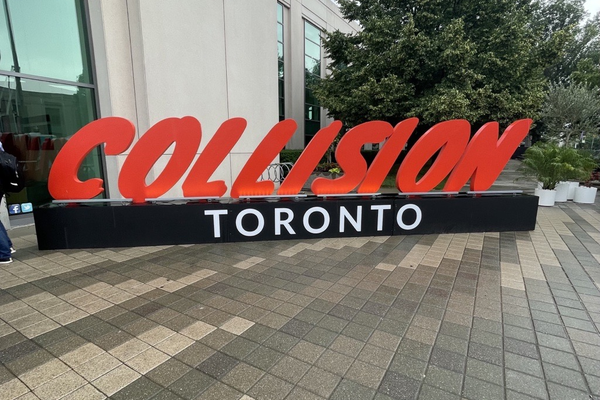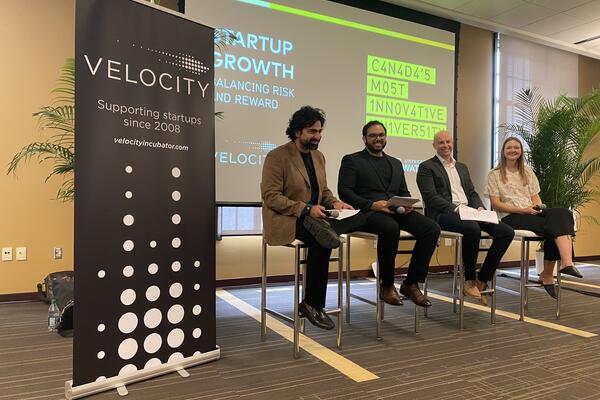
Discussing ethical tech is a journey we should all be taking
Waterloo hosts a masterclass at Collision on new approaches to responsible technology development

Waterloo hosts a masterclass at Collision on new approaches to responsible technology development
By Stephanie Longeway University RelationsBuilding ethical technology is “not a destination, it’s a journey,” said Jennifer Boger, professor in the Faculty of Engineering and chief science officer at ESG.AI.
As tech evolves, so must our approach to its responsible development. But the increasing complexity and speed of innovation make it feel impossible to keep up.
“Technology is more and more pervasive and powerful [in our lives] … everyone now has this powerful tool in their pockets,” she explained. As advances in technologies hit consumer markets, an understanding of the broad-ranging social implications needs to be addressed upfront in the design process.
Boger co-presented a masterclass on design ethics at the Collision tech conference on June 28 alongside Martin Ryan, foresight and transformation strategy at ServiceNow. She met Ryan at the UN’s AI for Good Summit in 2019 when she presented her manifesto, Ethical by Design.
She has been deeply committed to getting developers to review the ethical implications of their work and shared a set of principles to act as signposts for developers to consider and discuss the technology they are designing at the AI for Good Summit.
“In practice, our ethics only extend as far as our lines of inquiry,” Ryan said. He added that there are currently not many tools available to support ethical development.
Boger and Ryan want everyone working in technology — whether they are an engineer, an HR professional, or the CEO of the company — to consider the effects of what they are building and ask more questions.
They even suggest using generative AI tools, like ChatGPT, to begin this inquiry.
We have an ethical “cold-start” problem, Ryan explained. It’s a term sometimes used by programmers to explain when a human or system hits a barrier because it does not have the relevant information available in the context that it needs.
“Tools, like ChatGPT, can be used to push us through cold-start problems as we try and do this work,” he said. Ryan acknowledged that these tools are not perfect solutions for moral inquiries, but with the right prompts, they can be a starting place to help deepen ethical thinking.
Boger shared an outline of “ethical prompt engineering” to help deepen inquiry when using generative AI tools. These prompts include:
Describing your context: what are the specific goals, industry and challenges?
Finding concepts: are there relevant ethical frameworks already?
Applying a concept: how does this ethical concept apply in this specific context?
Filling in the gaps: what else do you need to know?
Exploring indirect consequences and stakeholders: who else is impacted?
Role playing different perspectives: what about those who are marginalized or vulnerable?
Boger acknowledged that some of these are difficult questions to bring up within your organization. But with generative AI tools, “we now have a new safe space to work on really hard questions.”
The point is to start a dialogue about the ethical implications of what we’re building.
It’s a personal journey, one that Boger and Ryan say everyone working in tech should be on.

Read more
Waterloo AI experts lead a masterclass at Collision on how business leaders can unlock the transformative potential of LLMs

Read more
Experts from Velocity share insights on how to successfully grow a business at Collision

Read more
New framework aims to avoid unintentional consequences of technology
The University of Waterloo acknowledges that much of our work takes place on the traditional territory of the Neutral, Anishinaabeg, and Haudenosaunee peoples. Our main campus is situated on the Haldimand Tract, the land granted to the Six Nations that includes six miles on each side of the Grand River. Our active work toward reconciliation takes place across our campuses through research, learning, teaching, and community building, and is co-ordinated within the Office of Indigenous Relations.